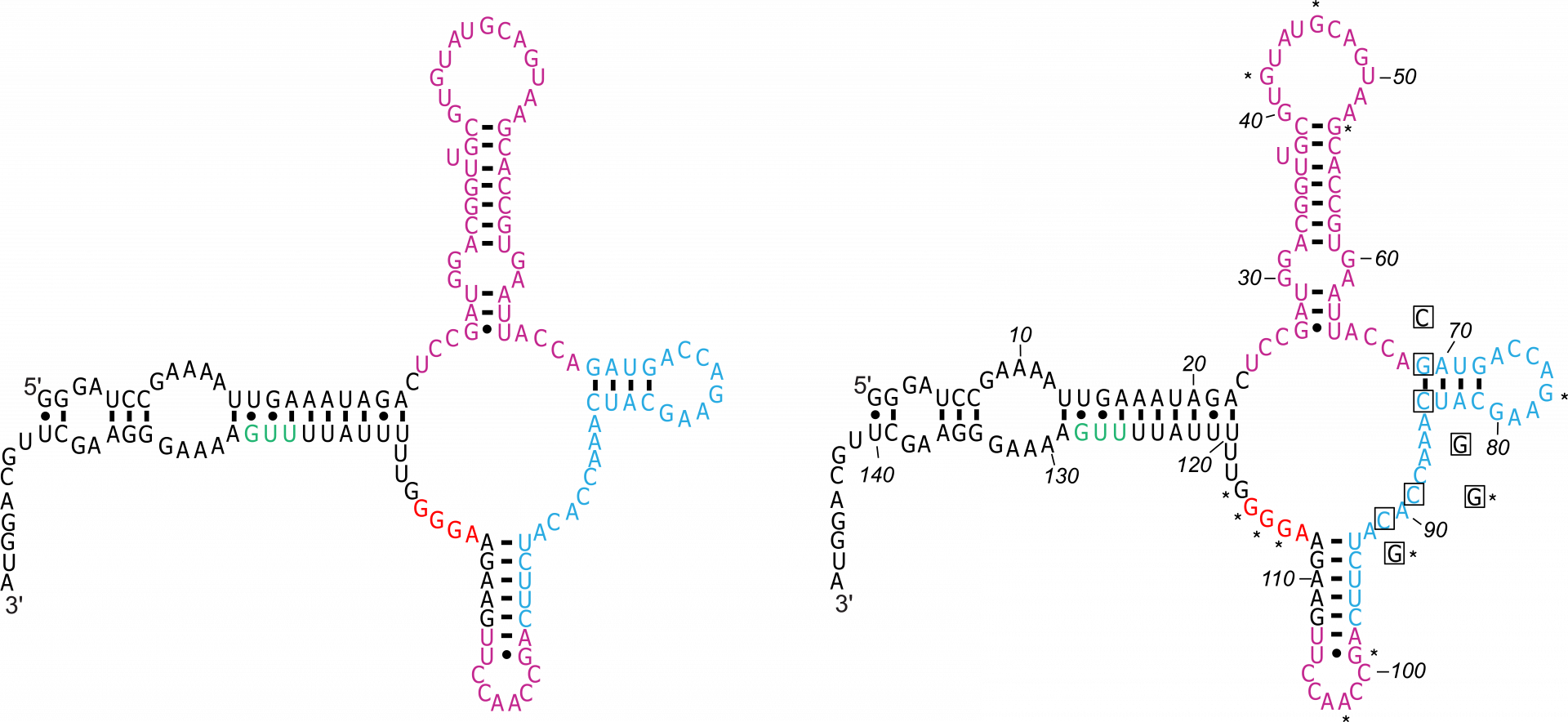Research Focus
About

RNAs are remarkable as both information carriers and structured functional macromolecules. Beyond their well-known role in the information transfer between DNA and proteins, RNAs act as catalysts (ribozymes) in many cellular processes such as protein synthesis, splicing, and tRNA maturation. In addition, RNA can fold to form small-molecule recognition elements (riboswitches) that regulate gene expression. It is clear that RNA structure and regulation is critical to a wide variety of cellular events, but the complexity of regulatory mechanisms is only now beginning to be appreciated.
This duality of function makes RNAs and their chemical analogs ideal for in vitro selection and evolution experiments. In vitro selection is a powerful tool for rapid cell-free identification of specific binders or efficient catalysts from very diverse synthetic or genomic libraries, with complexities of up to about 1e16. Aptamers, RNAs with high binding affinity and specificity, are readily isolated and can be evolved further to improve or alter their function. For example, they have been developed to bind a large variety of small molecule targets, to act as drugs that bind proteins and cells in a tissue-specific manner, and to deliver cargoes to those cells. Similarly, ribozymes have been evolved in vitro to accelerate a wide variety of chemical reactions.
We explore the biology and chemistry of RNA by utilizing in vitro selection and structure-based bioinformatics to search for new catalytic RNAs and aptamers in mammalian genomes. Through these RNAs, we look for novel modes of cell regulation. Another way in which we combine the study of RNA biology and chemistry is to use synthetic libraries to select aptamers and ribozymes with designed characteristics. Of particular interest is the selection of fluorogenic molecules that we will use to study RNA in live cells with hitherto unprecedented spatial and temporal resolution. To facilitate the selection process we are developing novel fluorescence-based methods to display and isolate fluorogenic nucleic acids.
Reach Us
University of California, Irvine
2141 Natural Sciences 2
Mail Code: 3959
Irvine, CA 92697
(949) 824-9132
aluptak@uci.edu